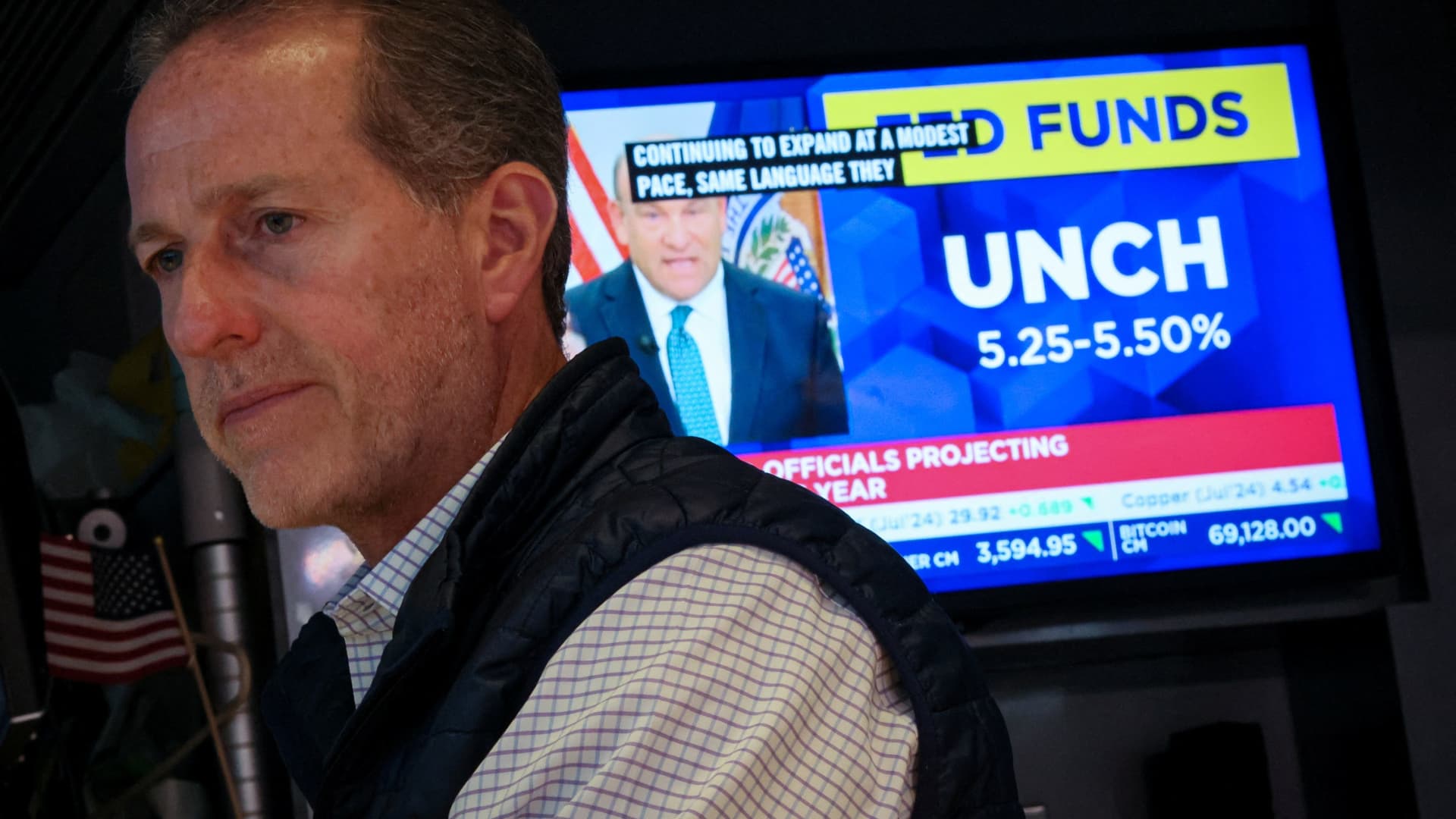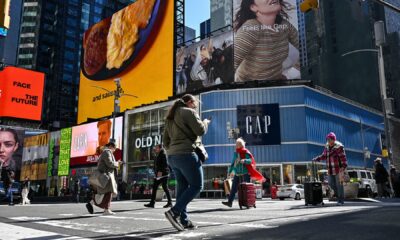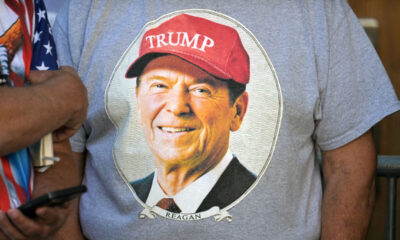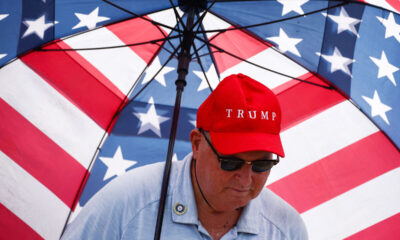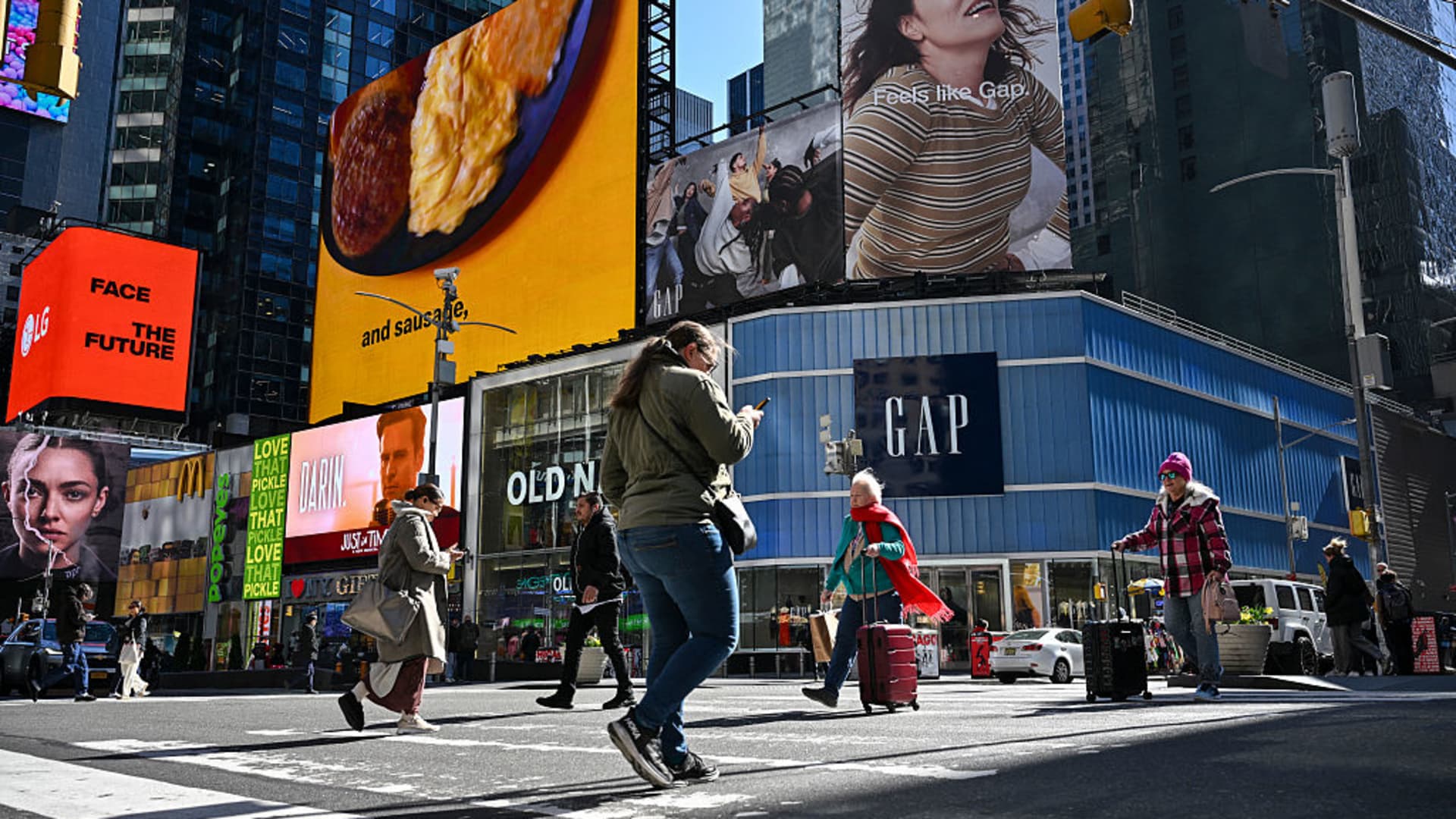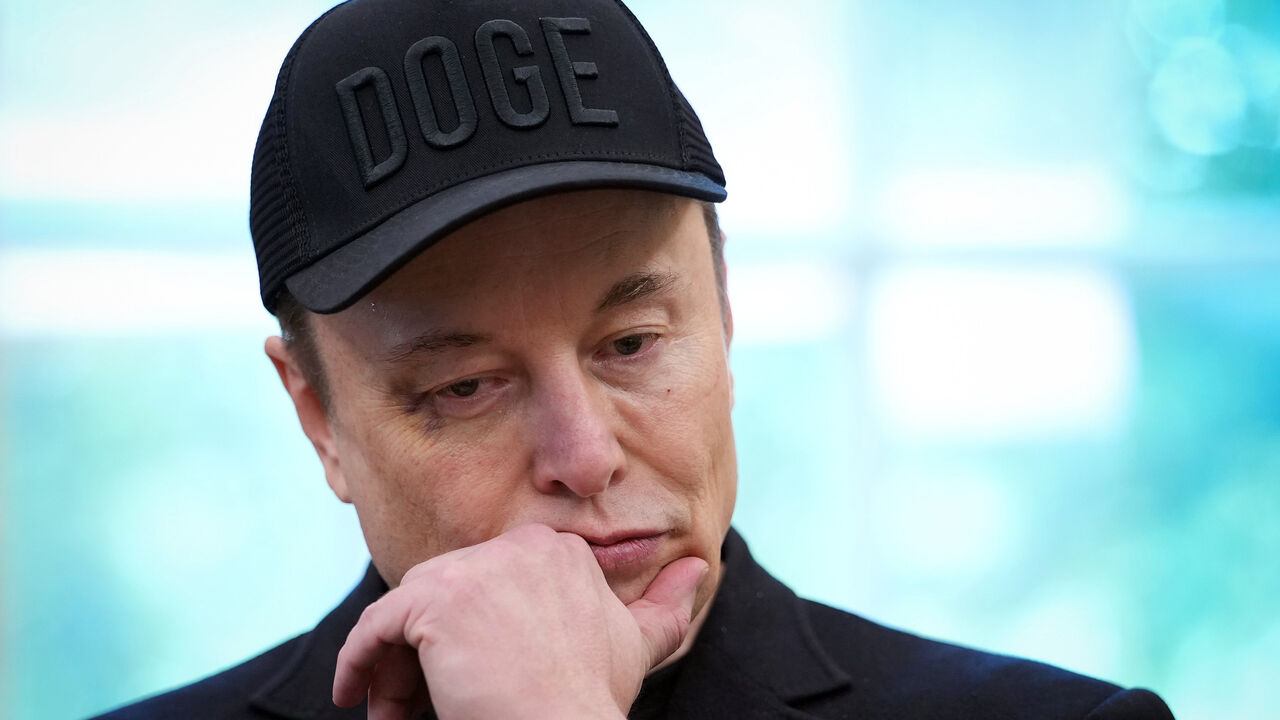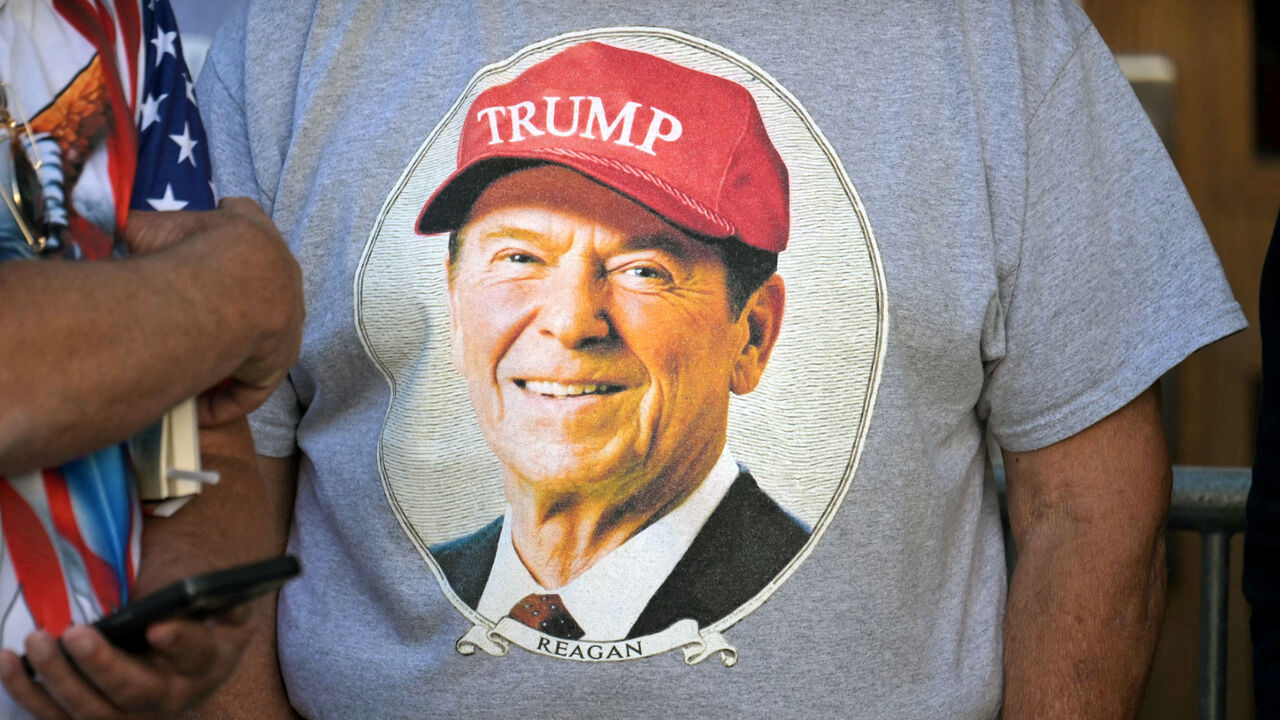A trader works as a screen displays the Fed rate announcement, on the floor of the New York Stock Exchange on June 12, 2024.
Brendan McDermid | Reuters
RIYADH, Saudi Arabia — Major Wall Street CEOs see ongoing inflation pressures in the U.S. economy and aren’t convinced that the Federal Reserve will continue its rate-easing path with a further two reductions this year.
The Fed cut its benchmark rate by 50 basis points in September, indicating a turning point in its management of the U.S. economy and in its outlook for inflation. In late-September reports, strategists at J.P. Morgan and Fitch Ratings had predicted two additional interest rate trims by the end of 2024 and expect such reductions to continue into 2025.
The CME Group’s FedWatch tool puts the probability of a 25-basis-point cut at this week’s November meeting at 98%. The current probability of the benchmark rate being taken down by another 25 basis points at the December meeting is 78%.
But some CEOs appear skeptical. Speaking last week at Saudi Arabia’s showcase economic conference, the Future Investment Initiative, they see more inflation on the horizon for the U.S., as the nation’s economic activity and both presidential candidates’ policies involve developments that will potentially be inflationary and stimulatory — such as public spending, the onshoring of manufacturing, and tariffs.
A group of CEOs speaking at an FII panel moderated by CNBC’s Sara Eisen — which included Wall Street hegemons such as the bosses of Goldman Sachs, Carlyle, Morgan Stanley, Standard Chartered and State Street — were asked to raise their hand if they thought two additional rate cuts would be implemented by the Fed this year.
No one put their hand up.
“I think inflation is stickier, honestly, you look at the kind of jobs report and the wage reports in the U.S., I think it’s going to be hard for inflation to come down to the 2% level,” Jenny Johnson, Franklin Templeton president and CEO, told CNBC in an interview on Wednesday, saying she thinks only one further interest rate cut will take place this year.
“Remember a year ago, we were all here talking about recession? Was there going to be [one]? Nobody’s talking about recession anymore,” she said.
Larry Fink, whose mammoth BlackRock fund oversees over $10 trillion in assets, also sees one rate reduction before the end of 2024.
“I think it’s fair to say we’re going to have at least a 25 [basis-point cut], but, that being said, I do believe we have greater embedded inflation in the world than we’ve ever seen,” Fink said at another FII panel last week.
“We have government and policy that is much more inflationary. Immigration — our policies of onshoring, all of this — no one is asking the question ‘at what cost.’ Historically we were, I would say, a more consumer-driven economy, the cheapest products were the best and the most progressive way of politicking,” he noted.
America’s consumer price index, a key inflation gauge, was up 2.4% in September compared to the same period in 2023, according to the U.S. Bureau of Labor Statistics. That figure is a tick down from the 2.5% print of August, implying a slowdown in price growth. The September reading was also the smallest annual one since February 2021.
On Friday, new data showed U.S. job creation in October slowed to its weakest pace since late 2020. Markets largely ignored the bad news, as the nonfarm payrolls report flagged acute climate and labor disruptions.
Goldman Sachs CEO David Solomon said inflation will more embedded into the global economy than what market participants are currently predicting, meaning price rises could prove to be stickier than the consensus.
“That doesn’t mean that it’s going to rear its head in a particularly ugly way, but I do think there’s the potential, depending on policy actions that are taken, that it can be more of a headwind than the current market consensus,” he said.
Morgan Stanley CEO Ted Pick went even further, declaring last Tuesday that the days of easy money and zero-interest rates are firmly in the past.
“The end of financial repression, of zero interest rates and zero inflation, that era is over. Interest rates will be higher, will be challenged around the world. And the end of ‘the end of history’ — geopolitics are back and will be part of the challenge for decades to come,” Pick said, referencing the famous 1992 Francis Fukuyama book, “The End of History and the Last Man,” which argued that conflicts between nations and ideologies were a thing of the past with the ending of the Cold War.
Speaking on Sara Eisen’s panel Tuesday, Apollo Global CEO Marc Rowan even questioned why the Fed was cutting rates at a time when so much fiscal stimulus had propped up a healthy-looking U.S. economy. He noted the U.S. Inflation Reduction Act and the CHIPS and Science Act and an increase in defense production.
“We’re all talking about, in the U.S., of shades of good. We really are talking about shades of good. And to come back to your point on rates, we massively increased rates, and yet, [the] stock market [is] at a record high, no unemployment, capital market issuance at will, and we’re stimulating the economy?,” he said.
“I’m trying to remember why we’re cutting rates, other than to try and equalize the bottom quartile,” he later added.

 Personal Finance1 week ago
Personal Finance1 week ago
 Blog Post1 week ago
Blog Post1 week ago
 Economics6 days ago
Economics6 days ago
 Economics1 week ago
Economics1 week ago
 Accounting6 days ago
Accounting6 days ago
 Personal Finance1 week ago
Personal Finance1 week ago
 Economics6 days ago
Economics6 days ago
 Personal Finance6 days ago
Personal Finance6 days ago
